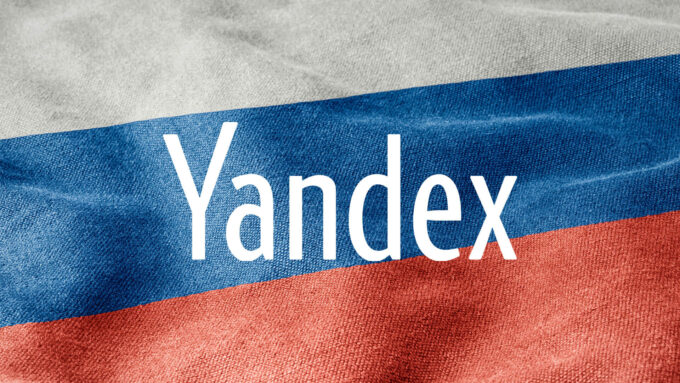In the dynamic world of search engines, Yandex stands out as a significant player, particularly in the Russian-speaking market. Yandex, often hailed as “Russia’s Google,” is not just a search engine; it’s a technological ecosystem encompassing various online services. Its market share in countries like Russia, Belarus, Kazakhstan, and Turkey makes it an indispensable tool for businesses and individuals aiming to reach these audiences.
Yandex distinguishes itself with its specialized focus on the Russian language and its intricate details. In contrast to worldwide search engine leaders like Google, Yandex exhibits a heightened sensitivity to the subtleties of Slavic languages, thereby providing its users with search results that are more precisely aligned with their linguistic context. This particular emphasis on language intricacies affords Yandex a competitive advantage in regional markets, establishing it as a preferred search engine for a vast number of users.
For businesses aiming to penetrate the markets of Eastern Europe and Central Asia, optimizing their websites for Yandex is of paramount importance. Achieving optimal alignment with Yandex’s criteria can lead to enhanced online visibility, an increase in web traffic, and the potential for higher rates of conversion within these specific regions. A deep comprehension of Yandex’s unique operational standards and the behavior of its user base is essential for effectively engaging with this expansive and distinctive demographic.
Understanding Yandex’s Search Algorithms

Yandex’s search algorithms are distinctly different from those of other search engines. This section explores these differences and the role of AI in shaping search results.
Yandex vs. Other Search Engines
While there are similarities in the basic principles of search engine optimization (SEO) across platforms, Yandex’s algorithms are specifically designed with the Russian-speaking user in mind. This includes nuances in language processing, local search preferences, and integration with other Yandex services. Yandex also places a strong emphasis on the geographical location of the user, offering region-specific results that are highly relevant.
The Role of Machine Learning and AI
Yandex leverages advanced machine learning and artificial intelligence technologies to constantly refine its search algorithms. These technologies enable Yandex to understand user intent more effectively, provide personalized search experiences, and combat spam and SEO manipulation. Yandex’s MatrixNet technology, for instance, is an AI system that helps in sorting search results more accurately based on user behavior and preferences.
Keyword Research and Optimization

In the realm of Yandex SEO, keyword research and optimization hold a place of paramount importance.
The Importance of Keyword Research for Yandex
Keywords are the cornerstone of effective SEO strategy for any search engine, and Yandex is no exception. However, keyword research for Yandex requires an understanding of the linguistic characteristics and search patterns of the Russian-speaking audience. The keywords that work well on global platforms like Google may not yield the same results on Yandex.
Tools and Techniques for Yandex Keyword Research
Several tools can aid in keyword research for Yandex. Yandex’s own Wordstat tool is invaluable for understanding how users are searching in Russian. It provides insights into search volume, seasonal trends, and related search queries. Other tools like Serpstat and SEMrush offer functionalities tailored for Yandex keyword research.
Best Practices for Keyword Integration
Once the right keywords are identified, integrating them into website content is a delicate art. Keywords should be naturally woven into titles, meta descriptions, headers, and body content. Overstuffing keywords can lead to penalties, so it’s crucial to maintain a balance. Moreover, considering synonyms and long-tail keywords can enhance the content’s relevance and reach.
On-Page SEO for Yandex
On-page SEO is crucial for ranking well on Yandex. It involves optimizing various elements of your website to make it more search engine-friendly.
Meta Tags, Headings, and Descriptions
Meta tags, headings, and descriptions play a significant role in on-page SEO for Yandex. Title tags and meta descriptions should be concise, and descriptive, and include relevant keywords. Headings (H1, H2, etc.) structure your content and make it easier for Yandex to understand the hierarchy and relevance of the information on your pages.
Optimizing Site Structure and URLs
A well-organized site structure and clear, descriptive URLs are essential for Yandex SEO. URLs should be straightforward and include relevant keywords. A logical site structure with a clear hierarchy aids Yandex in indexing your site more effectively.
Image Optimization
Optimizing images is vital for Yandex SEO. Use descriptive file names and alt tags for all images. This not only helps Yandex understand what the image is about but also improves accessibility for users with screen readers. Compressing images improves page load times, which is a critical factor for both user experience and search engine ranking.
Mobile Optimization
With the increasing use of mobile devices, optimizing your website for mobile is essential. Yandex prioritizes mobile-friendly websites in its search results. Ensure your site is responsive and offers a seamless experience across all devices.
Content Strategy for Yandex

High-Quality, Relevant Content
Yandex prioritizes high-quality, informative, and relevant content. Your content should provide value to your audience, be well-researched, and be written in a style that resonates with your target audience.
Understanding the Russian-speaking Audience
Understanding the cultural nuances and preferences of the Russian-speaking audience is key. Content should be tailored to their interests, questions, and the type of information they are seeking online.
Engaging and Informative Content
Content should be engaging, well-structured, and informative. Use a variety of formats like text, images, and videos to make your content more appealing. Regularly updating your site with fresh content can also help maintain and improve your rankings on Yandex.
Technical SEO for Yandex

Technical SEO is about optimizing the infrastructure of your website to improve its ranking on search engines.
Website Loading Speed
Website loading speed is a critical factor in Yandex SEO. Faster loading websites provide a better user experience and are favored by Yandex. Optimize your website’s loading speed by compressing images, leveraging browser caching, and improving server response time.
Secure Websites: HTTPS
Security is a priority for Yandex, and HTTPS has become a standard for trustworthy websites. Migrating from HTTP to HTTPS can have a positive impact on your site’s ranking and user trust.
Yandex-friendly Site Map
Creating a site map is easy. This helps Yandex understand the structure of your site and index it more effectively.
Avoiding Penalties
Avoid practices that can lead to penalties from Yandex, such as cloaking, keyword stuffing, and using hidden texts or links.
Yandex Webmaster Tools
Yandex Webmaster Tools is an essential resource for anyone serious about optimizing their site for Yandex.
Webmaster Tools provides insights into how Yandex views your website. It offers data on search queries, site health, and indexing issues.
Setting Up and Using the Tool
Setting up your site with Webmaster Tools is straightforward. Once set up, regularly monitor your site’s performance and look for any crawl errors or security issues.
Error Detection and Website Monitoring
Use Webmaster Tools to detect errors and monitor the overall health of your website. Regular monitoring allows you to react quickly to issues that could impact your SEO efforts.
Link Building and External Optimization

Link building is a fundamental aspect of SEO, and it’s no different for Yandex.
Importance of Backlinks in Yandex SEO
Backlinks are a crucial ranking factor for Yandex. They signal the popularity and credibility of your website. A robust backlink profile can significantly boost your rankings on Yandex.
Strategies for Acquiring High-Quality Backlinks
Focus on acquiring high-quality backlinks from reputable and relevant websites. This can be achieved through guest blogging, collaborations with industry influencers, and creating shareable content that naturally attracts backlinks.
Understanding Yandex’s Approach to Link Evaluation
Yandex evaluates links based on their quality, relevance, and the context in which they are placed. Links from high-authority sites within the same industry are more valuable. It’s important to avoid black-hat SEO tactics like buying links or participating in link farms, as these can lead to penalties.
Local SEO for Yandex

Local SEO is especially important for businesses targeting specific geographic areas.
Significance of Local SEO in Yandex
Local SEO helps businesses appear in relevant local search queries on Yandex. This is crucial for attracting a local audience and driving traffic from specific regions.
Optimizing for Yandex Maps and Local Search Results
Ensure your business is listed and accurately represented on Yandex Maps. This involves providing up-to-date contact information, descriptions, and relevant images.
Strategies for Local Link Building and Content Localization
Building local backlinks and creating content that resonates with local audiences can significantly improve your local SEO efforts. Participate in local events and collaborate with local businesses to enhance your local presence.
Monitoring and Analytics
Monitoring and analyzing your website’s performance is crucial for effective SEO.
Setting Up Yandex.Metrica for In-depth Analytics
Yandex. Metrica is a powerful tool for understanding your website’s performance. It provides detailed analytics on user behavior, traffic sources, and more.
Analyzing Traffic, User Behavior, and Conversion Rates
Regularly analyze your website’s traffic and user behavior to understand what works and what doesn’t. Pay special attention to conversion rates to gauge the effectiveness of your SEO strategies.
Using Analytics Data to Refine SEO Strategies
Use the insights gained from Yandex. Metrica to refine and adjust your SEO strategies for better results. Continuous analysis and adaptation are key to maintaining high search engine rankings.
Staying Updated with Yandex SEO Trends
SEO is an ever-evolving field, and staying updated is crucial.
Keeping Up with the Latest Changes in Yandex’s Algorithms
Yandex frequently updates its algorithms. Staying informed about these changes helps you adapt your strategies to maintain or improve your rankings.
Participating in SEO Forums and Following Yandex’s Official Blog
Engaging with the SEO community and following Yandex’s official blog can provide valuable insights and keep you ahead in your SEO efforts.
In the dynamic and complex realm of SEO, particularly for Yandex SEO optimization, where algorithms and requirements are in a state of constant flux, the challenge of independently mastering and applying all the essential tactics and strategies can be overwhelming. Effectively optimizing a website for search engines, notably for Yandex, demands not just a profound grasp of SEO fundamentals but also a keen sensitivity to the latest trends and changes in algorithms.
For numerous businesses, particularly those lacking in-house SEO expertise, turning to a professional SEO agency can be an astute choice. Such an agency offers a rich array of knowledge, specific tools, and the seasoned expertise required to adeptly manage the intricacies of Yandex SEO optimization, ensuring that your website is not only finely tuned but also routinely updated to align with evolving search engine protocols.
Conclusion
Optimizing your site for Yandex requires a comprehensive understanding of various SEO aspects. This article has provided a detailed guide on effectively optimizing your site for Yandex, from on-page SEO to link building, local SEO, and analytics.












